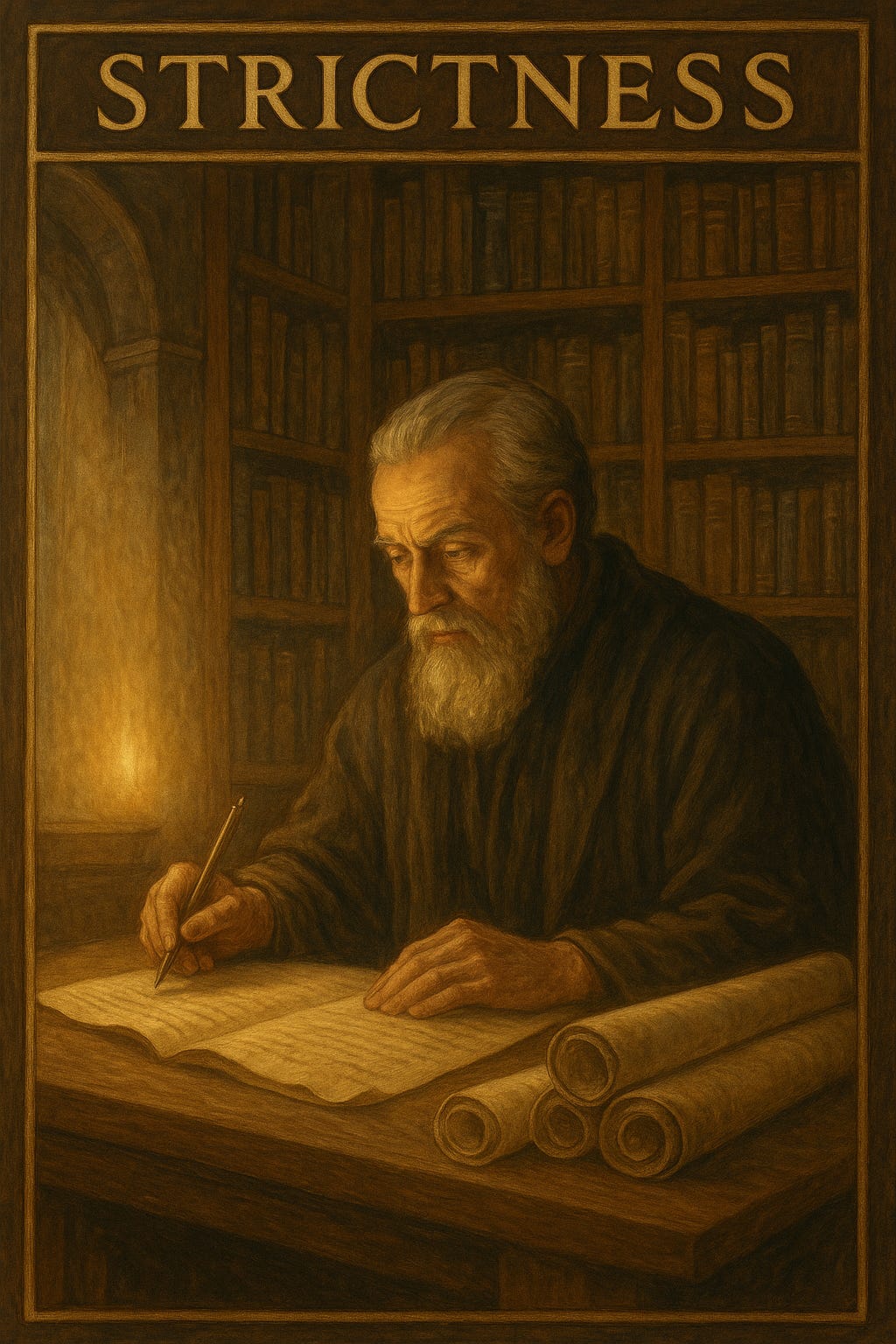Strictness (ἀκριβής)
Word Study
Strictness is a noun derived from a root meaning “precision.” It expresses something that is exact, accurate, or carefully regulated in nature. Therefore, it pertains to strict conformity to a standard.
Before Paul's conversion to Christianity, he was a Pharisee—part of a strict sect within the Jewish religion, particularly devoted to the traditions handed down from the fathers (Acts 26:4). The Pharisees were so meticulous in their observance that they would even tithe a portion of mint and cumin; yet, in their religious zeal, they neglected the weightier matters of the law (Matthew 23:23).
Luke uses this word as an adverb in Luke 1:3, describing his strict, orderly account of the events that took place surrounding the coming of the Messiah, His death, and His resurrection three days later.
When Apollos—an eloquent man, born in Alexandria and mighty in the Scriptures—came to Ephesus proclaiming the immersion of John, Aquila and Priscilla took him aside and explained the way of God more accurately (Acts 18:26). Apollos had been accurately speaking the things of God concerning the baptism of John, but he was not aware of all that had taken place since then (Acts 18:25).
We, as Christians, are to walk in a strict manner—not as fools, but as wise—redeeming the time, because the days are malignantly evil (Ephesians 5:15–16). We are to understand what the desirous will of the Lord is and abide by it, not being drunk with wine, in which there is no savingness, but being filled up where we lack by the Spirit, so that we are able to manifest a character reflective of Christ living in us (Ephesians 5:17–18).
Paul taught the Thessalonians accurately concerning the coming of the Lord. When He comes, the world will be saying, “Peace and safety,” but sudden destruction will come upon them (1 Thessalonians 5:2). Because of this knowledge, we also possess a strict understanding concerning the day of the Lord and are therefore not to walk as those in darkness. We are sons of light and sons of the day. Let us not sleep as those of the night, but walk soberly as in the day, putting on the breastplate of faith and love, and the helmet of salvation. For God has not appointed us to any quality of wrath, but to obtain salvation (1 Thessalonians 5:6–9).
Strictness (ἀκριβής) carries the idea of meticulous accuracy, careful observation, or strict adherence to a standard. It is used in reference to accurate reporting of events, the way of God in salvation after the resurrection of Christ, and religious discipline. Unlike the foolish conduct of the Pharisees, who rejected the law of God in favor of the traditions handed down from their fathers, we, as the Church, are to reject heresy and walk strictly according to what we have received—not by self-effort or law, but by grace through faith, as we freely live out the righteousness we possess in Christ.


